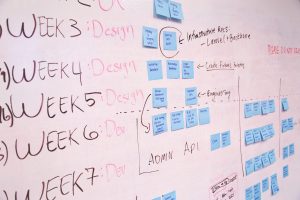Home Working and Childcare: Considerations for your Family’s Cobra Meeting
Many of us will be worrying about how we are going to manage childcare and working over the coming months. Schools and nurseries are closed indefinitely for the children of most staff working in the UK higher education sector. There are exceptions for staff who are considered key workers or whose partners are, and for staff whose children are considered ‘vulnerable’ but many families are likely to be holding their own Cobra-style meetings over the coming days now the government’s aim is to keep as many children away from school as possible.
How on earth are we going to keep delivering for our employers while ensuring our children keep learning but also do not, literally, climb the walls?!
Like me, you may have already been inundated with WhatsApp messages about learning resources, tips from parents who home school (who we are now rather envious of) and recommended schedules as well as recommendations not to worry about schedules and focus on your children’s wellbeing. 
Like me, you are no doubt very grateful for those recommendations but how will you utilise them while simultaneously juggling work and childcare/education with your partner (if you have one)? And remember no grandparents, unless they are not considered vulnerable, allowed!
Many academics work flexibly to the point that, some say, they find formal flexible working requirements, as recommended within our Athena SWAN Charter, too restrictive. Professional and support staff may however, be more restricted, especially if they are in a service or front of house role. However, we need to be thinking beyond flexible working and look towards agile working. Flexible working is easily described as working anytime, anyplace and anywhere. But as highlighted by www.agile.org.uk, agile working is multi-dimensional. It is ‘…not just limited to doing the same work in the same way at a different time and place.’ It goes beyond that to consider how well people work and focuses on what they achieve.
Normal life is changing but it is also an opportunity for us to review the norm and explore different and potentially better ways of working.
So, in your family Cobra meeting, do not just consider how you can use leave (and worst case scenario unpaid parental leave to which everyone with children and adopted children up to the age of 18 are entitled to while retaining employment rights), also consider:
- What your higher education institution expects you to achieve.
- You and your family’s wellbeing and mental health.
- What may work in your particular circumstances?
Ultimately, this is a worrying time for us all and our kids, and yet unusual and challenging times are often the ones we remember the most. If we can, we may be able to ensure that our kids have fond memories of having to spend too much time with their family within their home. It is also likely to be a time when we will need to be particularly mindful of the social media that our kids are using, as well as the news that they are watching and reading.
As families are likely to be at home together, we can also consider:
- Working different days. If our kids are unable to attend school, we are unable to attend our workplace, the myriad of activities our kids attend have stopped, as have visits to friends and family, the weekends and weekdays are likely to blur. Kids will need to have some fun time every day and this gives you seven days a week to fulfil your contractual hours rather than five so you may be able to reduce the number of hours you work each day, work on different days, or alternate days with your partner.
- Can you merge work diaries? While one of you is in a remote meeting, can the other look after the kids or if you don’t have someone to share the childcare with, can you plan in some TV or tablet time or set up an activity?
- Try working while your kids are doing their home working packs that schools are putting together or using other learning resources.
- If you do the above, try to keep meetings to a maximum of 50 minutes (or whatever works best for your kids) so that you can give your kids regular attention, top up drinks and get snacks in.
- Ensure your kids exercise inside or outside before you have an important meeting.
- Introduce your kids to your colleagues if you want and need to. Normally it may be perceived to be unprofessional if your kids pop up in the background of your video link waving a light sabre (as mine did this week) but they will be at home and we unfortunately do not all have large houses, with gardens complete with play equipment and a swimming pool. We just need to remember the infamous BBC interview and all the tips on what he could have done that followed.

- Make it clear if you need to pause a meeting to attend to your kid especially those of us with younger ones or kids with additional needs.
- Our kids will have been used to having a hot cooked lunch at school. To save time in the day can you cook extra in the evenings and give them leftovers for lunch? It may be quicker than making a sandwich and may reduce the snacks they demand.
Good luck and stay strong! Remember we work in a sector with established flexible working practices already in place in many areas which we can build upon. The current situation provides us with an opportunity to explore new ways of working which may benefit us all in the longer term.
As the global health emergency progresses, the challenges that institutions face in meeting the needs of their diverse staff and student communities are likely to become more complex and the responses to those challenges more creative and resourceful.
Advance HE is committed to supporting the sector in these difficult times. Join the conversation on the EDI Practitioners Network on Advance HE Connect.
Originally published here
